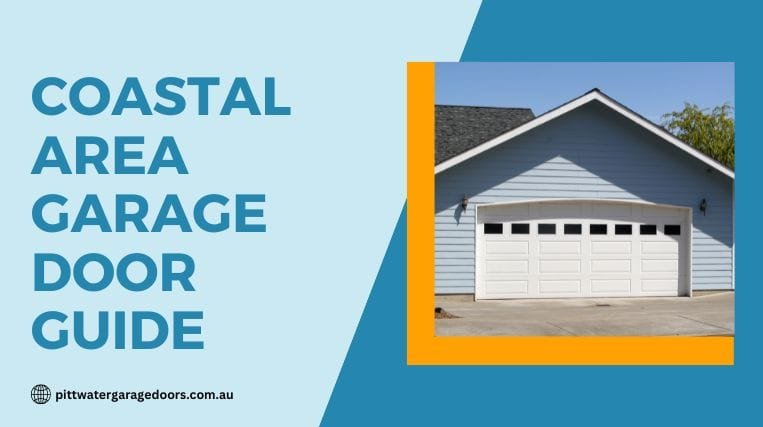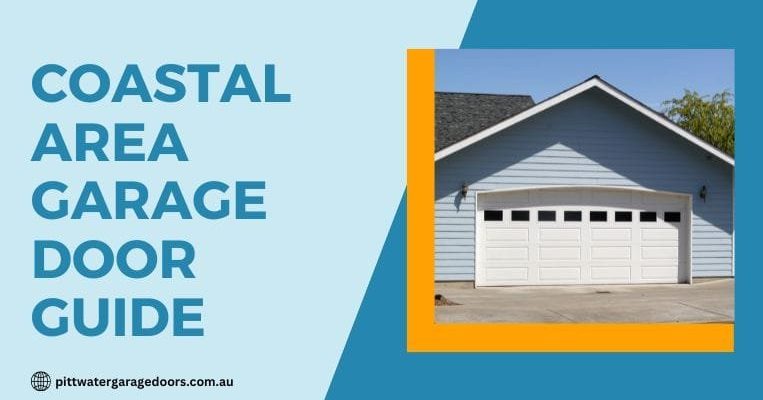
Consider your garage door opener as the gatekeeper of your storage space. Just as you wouldn’t want a flimsy, rust-prone gate at your beachfront property, your garage door opener needs to be sturdy, especially in coastal environments. The saltwater in the air can be tough on various materials, so let’s dive into how to choose wisely.
Understanding Coastal Challenges
Coastal environments demand specific features in garage door openers due to the harsh conditions. The constant exposure to salt air can lead to corrosion and rust, which is a nightmare for any homeowner. This is especially true for metal components, which are often susceptible to wear over time.
Think about it like this: if you lived in a place where it rained like clockwork, you’d choose weather-resistant materials for everything, right? The salty sea air behaves similarly. It can degrade certain finishes, making durable materials a priority.
Additionally, heavy winds can be common, especially near the shore. Ensuring that your garage door opener can withstand these weather conditions is essential for functionality and safety.
Material Choices: Steel vs. Aluminum
When you’re deciding on materials for your garage door opener, steel and aluminum are two primary contenders. Each has its strengths and weaknesses in a coastal setting.
Steel is known for its strength and durability, especially if properly coated. Many steel garage door openers come with a special finish that helps resist rust. However, if you opt for a cheaper model without proper sealing, it could end up as a rust bucket in no time!
On the other hand, aluminum is naturally resistant to rust, making it an excellent choice for coastal areas. It’s lighter and won’t corrode as quickly as steel, even under harsh salty conditions. However, aluminum can be slightly less durable than steel in terms of impact resistance.
Here’s a quick comparison for clarity:
| Material | Durability | Rust Resistance | Weight |
|---|---|---|---|
| Steel | High | Moderate (with proper coating) | Heavy |
| Aluminum | Moderate | High | Light |
Understanding Finishes
Finishes play a crucial role in how well your garage door opener holds up against coastal elements. Without a solid finish, even the best materials can succumb to corrosion.
When choosing a finish, look for options like powder coating or galvanization. Powder coating adds a durable layer that can protect against salt and moisture. This finish not only enhances the appearance but also significantly extends the life of the opener.
Galvanization, on the other hand, involves coating steel with zinc, creating a barrier against rust. If you choose a steel model, this kind of finish can be the difference between a long-lasting opener and one that needs replacing in a few years.
Weather-sealed Components
You might be wondering, “What about the parts inside the opener?” Great question! Weather sealing is an often-overlooked aspect that plays a sizable role in longevity. Look for openers that come with weather-sealed components, especially around control boards and motors.
These seals help keep out moisture and debris, protecting the inner workings from corrosion. It’s like putting a raincoat on your opener; it won’t keep things dry if it gets wet otherwise!
Additionally, consider the sealing of wires and connections. Moisture can infiltrate electrical components, causing them to short out and lead to costly repairs.
Impact Resistance
Living near the coast also means dealing with strong winds, sometimes gusting to unexpected levels. This brought up the need to think about impact resistance when selecting your opener.
Choose openers that are rated for high wind resistance—especially if you’re close to the shore. Some brands offer models specifically designed for coastal areas, incorporating features that help withstand harsh conditions. Check for ratings like wind-load resistance to ensure your investment is worth it.
For example, a garage door opener might come with an impact-resistant casing that protects against wind and debris. This reduces the chances of the door being damaged or the opener failing when you need it most.
Remote Controls and Corrosion
You might overlook the humble remote control while focusing on the garage door itself. But let’s consider this for a moment: how often do you use your remote? Daily, right? So, what happens if it’s corroded?
Some remotes come with a protective casing designed to resist moisture. Look for remotes with weatherproof features, ensuring they can withstand the salty air and occasional rain.
Using a garage door opener that allows for smartphone integration can also be less impacted by the coastal environment. If your remote fails, you can still use your phone to operate the door, minimizing reliance on physical components that may corrode.
Battery Life in Harsh Conditions
Don’t forget about the batteries! If you live in a coastal area, incorporating a strong battery system is crucial. Corrosion can affect battery life, leading to a need for frequent replacements.
Choose an opener with a battery backup that is designed for coastal use. Some companies offer batteries that can withstand humid and salty conditions, ensuring that even when the power goes out, your garage door remains operational.
Always check the specifications for battery life and any warranties offered. It’s comforting to know that, come what may, your garage door opener can still function as needed.
Common Troubleshooting Tips
Even with the best materials and finishes, problems can pop up from time to time. Here are some proactive tips to keep your opener running smoothly:
- Regular Inspections: Check for rust or wear every few months. The earlier you catch issues, the better.
- Cleaning: Rinse the opener and its components periodically to remove salt residue.
- Moisture Control: Ensure that the opener is well-sealed to keep the moisture out, especially around electrical connections.
- Software Updates: If your opener is smart-enabled, keep its software updated to avoid troubleshooting headaches.
Investing in a coastal-rated garage door opener can save trouble down the road. Keep an eye on these factors, and you’ll be well-prepared.
Budgeting for Quality
Lastly, let’s talk money. It’s tempting to go for the cheapest garage door opener, but in coastal regions, this might not be the best move. Think of it like buying a good umbrella. A fancy looking one may catch your eye, but it’s the sturdy, well-made one that will keep you dry during a storm.
You might find that models specifically designed for coastal environments come at a premium. However, their durability could save you money on replacements down the line. Look for warranties and customer reviews when comparing options; they can provide valuable insight into the expected longevity.
Choosing a garage door opener for coastal environments isn’t just about picking a model off the shelf. It’s about understanding the unique challenges that salt air, moisture, and strong winds bring to the table. By focusing on the right materials, finishes, and features, you can ensure that your garage door opener stands the test of time.
Invest some time into researching and comparing different options. With proper care and consideration, you’ll end up with an opener that protects your garage effectively, allowing you to enjoy the beauty of coastal living worry-free.
